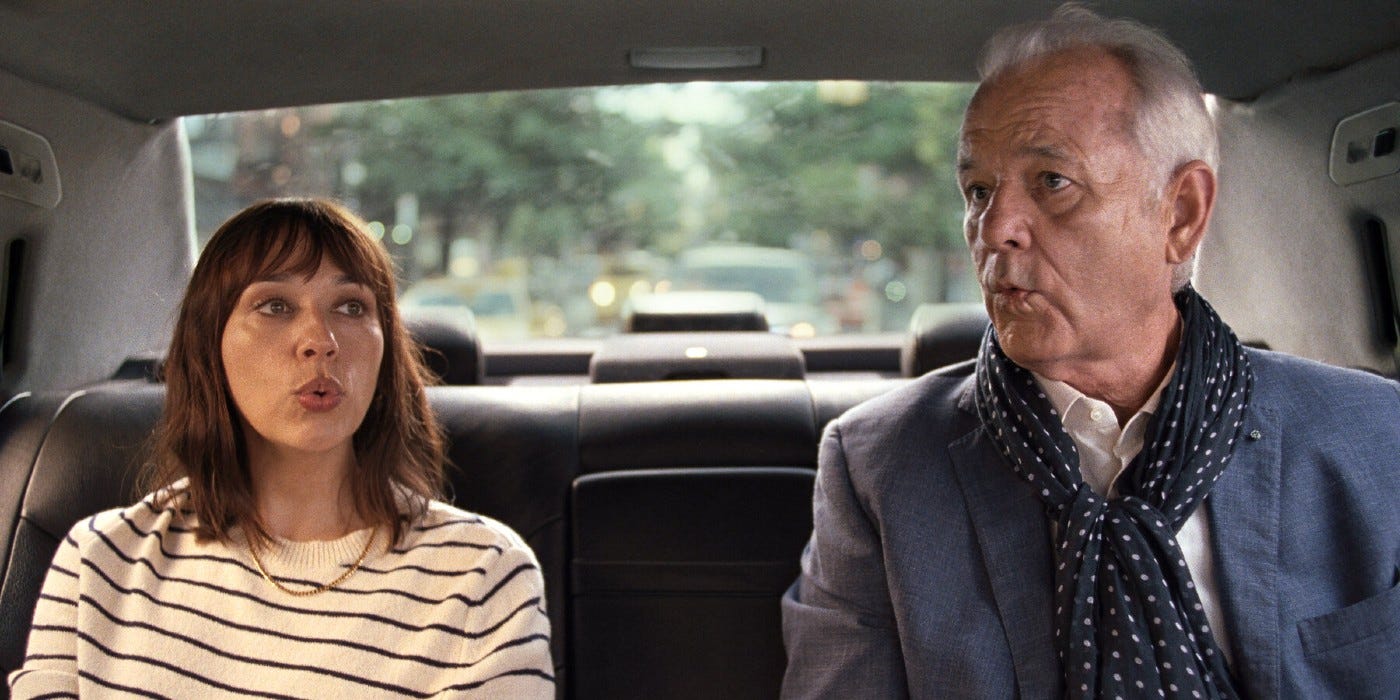Of all the many ways we’re asked to forgive and forget a character’s shortcomings or bad choices in film, infidelity is the hardest one for me. The number of movies I’ve seen where I understood or related to someone who makes the choice to do so is very rare, almost non-existent. There are extreme circumstances, of course, but in a run-of-the-mill plot where people aren’t outsized monsters to each other I generally just can’t vibe with that particular choice. So it was quite refreshing to watch two movies in relatively quick succession where I either found myself aligning with the adulterer or that the end result was different than what you’d expect from a narrative revolving around cheating.
*Spoilers for films from 2017 and 2020*
In Gillian Robespierre’s Landline, there are a pair of infidelities that are central to the plot. The main focus is on a father’s affair and his two daughters’ discovery of clues indicating its existence. While that is taking place, the main character (Jenny Slate’s Dana) has her own monogamy slip up as she approaches a wedding date with her fiance. For Rashida Jones’ Laura in On the Rocks, she suspects her husband of cheating based on some relatively thin evidence and enlists the help of her father to track down the truth. Eventually they discover there is no infidelity, just overwork for the husband and too much idle time for the wife, and while Laura’s father (the always reliable Bill Murray) gets called out for his own checkered past with monogamy, he isn’t forced to reckon with it or examine it in a way that feels defamatory or accusatory. Both films feature the repairing of a familial relationship while investigating the potential wrong-doings of another in the unit. The sisters in Landline reconnect with each other while working out what exactly Dad is up to and the father/daughter connection in Sophia Coppola’s film essentially takes center stage while their increasingly silly investigative efforts progress.
It’s of note that both films are written and directed by women. Perhaps I needed that perspective on the act of violating the love and trust of a partner to see the inherent humanity of it. At any rate, these two films have allowed me to see an aspect of the world in a new and informative way while still allowing me to maintain my own beliefs. It’s a wonderful power of art in general, and film specifically in this instance, that will make me continually and perpetually return to see what I can learn anew.
Below are the two first-impression write-ups I did of each film right after finishing them.
Landline - Well, she did it. Gillian Robespierre wrote (along with Elizabeth Holm) and directed a film about infidelity where I understood, sympathized with, and rooted for the adulterer. Clearly it helps to have Jenny Slate playing that role, as she’s easily one of the most likable screen presences working today (and maybe of any day). The family unit, made up of Slate, Edie Falco, John Turturro, and Abby Quinn (who really, really needs to be in more stuff), is expertly cast and directed. They feel so naturally a unit that it’s heartbreaking to watch them fall apart discovering another indefinitely and while the two sisters become close. The whole cast is expertly assembled, even Jay Duplass (the underrated of the brothers, in my estimation) has beautiful and poignant moments among the silliness. There’s such a realness and a comfortability to Robespierre’s work and Slate and Quinn are especially good fits for it. Among all that heart and honesty is that great comedy, also natural in its flow. Oh, and the needle drops! 90s period pieces will never not speak to me on a deep level, but the music in this one felt culled from my own tape collection. This is often seen as inferior to Obvious Child but I think it makes an excellent pairing instead of being lesser than.
On the Rocks - Refreshing to see a troubled marriage comedy that manages to avoid demonizing the spouse under suspicion and end on a relatively serene note. What normally sells these capers is the steadily descending swirl down into dissolution of the union or at least the self, but this one instead looks to examine and strengthen the self without too deeply espousing any one way of being or doing things. It’s also a vehicle for Rashida Jones and Bill Murray to work their considerable charms on each other and the audience. The father/daughter stuff is, as a result, quite charming as well. It’s hard not to think of Sofia’s own relationship with Francis. And it’s always a pleasure to watch her turn her practiced lens on any city or locale.





